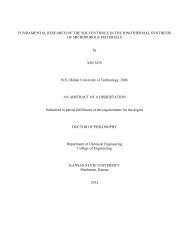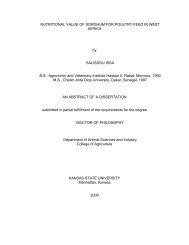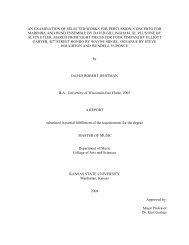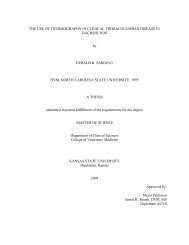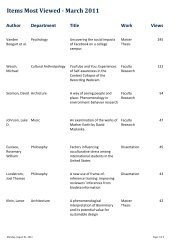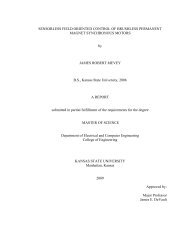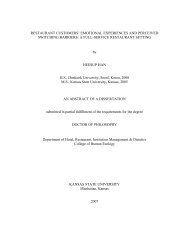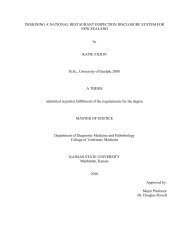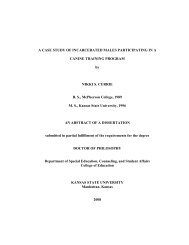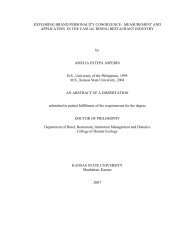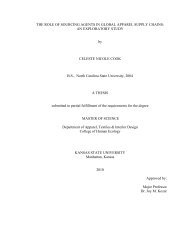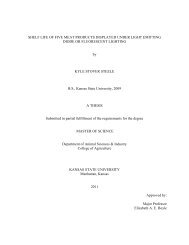SELFISH INTENTIONS - K-REx - Kansas State University
SELFISH INTENTIONS - K-REx - Kansas State University
SELFISH INTENTIONS - K-REx - Kansas State University
You also want an ePaper? Increase the reach of your titles
YUMPU automatically turns print PDFs into web optimized ePapers that Google loves.
divorce cases that he had tried in order to determine the trend in divorce in his district. He found<br />
ninety-one cases were disposed of by consent or upon default; thus, only nine cases were<br />
contested. Furthermore, he was satisfied through observation that the volume of divorce<br />
litigation was increasing. He also believed that a remedy could be found by mandating the<br />
involvement of the county attorney. Judge Hazen contended, “I believe a partial remedy for the<br />
evil would be found in the enactment of a law making it the duty of the county attorney to appear<br />
in all divorce cases, file an answer and make such defense as he deems proper. This would give<br />
him an opportunity to cross-examine the witnesses appearing for the plaintiff and would, I think,<br />
in many cases show thereby that the plaintiff is not entitled to a divorce.” 110 With the current<br />
law in default cases, the district court judge could not enter into an extended cross-examination<br />
of the plaintiff’s witnesses, but the judge’s duty was to grant the divorce if the plaintiff made a<br />
convincing prima facie or self-evident case. In conclusion, Judge Hazen of Topeka<br />
recommended stricter procedural guidelines in order for judges to be able to decide the case with<br />
all sides of the information presented in order to make sure that a divorce was needed not just<br />
wanted by the plaintiff. 111<br />
Judge Hutchinson of the Thirty-Second <strong>Kansas</strong> District Court recommended two changes<br />
to the present law. First, he also argued that county attorneys should be required to appear<br />
during the case to cross-examine witnesses and defend in all cases. Then he claimed the biggest<br />
problem with <strong>Kansas</strong> divorce law was the amount of collusion or secretive agreements in<br />
cases. 112 In his observations of <strong>Kansas</strong> divorce law, he found that it is decidedly unsatisfactory.<br />
He reasoned, “There are too many cases that are the result of collusion and are permitted to go<br />
110 Ibid.<br />
111 Ibid.<br />
112 Judge Hutchinson lived in Garden City, <strong>Kansas</strong>.<br />
46



